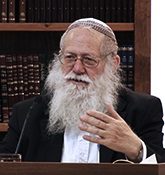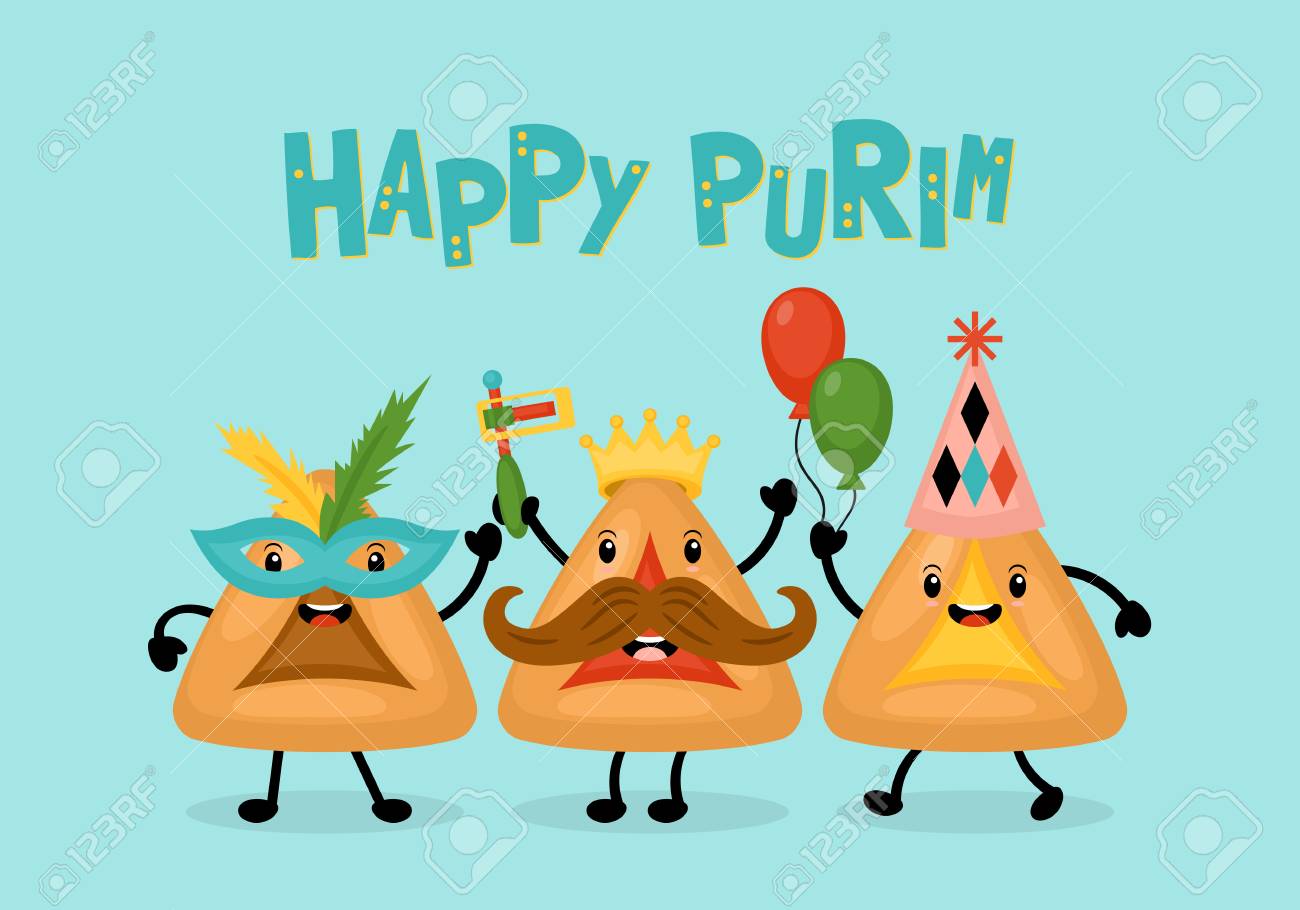“When Adar arrives we increase our joy, and when Av arrives we decrease our joy” (Ta’anit 29a).
by HaRav Dov Begon, Head of Machon Meir

In Adar, God shone His countenance upon us and saved us from the plot of wicked Haman. We therefore display great joy over God’s enormous kindness. Yet even in Av, during which God concealed His countenance from Israel and two Temples were destroyed, we do not eliminate our joy altogether but only “decrease” it. The foundation of our faith is that even when God “conceals His countenance,” our Father in Heaven is still acting in secret for our benefit. Therefore, a believing Jew who truly, constantly serves God, must remain joyous, whether God is revealing His face or concealing it. Joy may be compared to music. The volume can be turned up or down, but the tune of faith, trust and joy cannot be turned off altogether. “A person must bless God for the bad just as he blesses Him for the good” (Brachot 9). R. David Kimchi rejoins “with a whole heart and with joy” (Redak, I Samuel).
The State of Israel finds itself in a complex and complicated situation. We are at war with our enemies who are rising up to destroy us and to drive us out our land – it will never be! Likewise, cultural, social and political power struggles from within are seemingly weakening the strength and fortitude of the nation. Even so, we trust in God, and rely on the words of our prophets, prophets of truth and justice: “The Lord will not cast off His people, nor will He forsake His inheritance” (Psalm 94:14). The farther we march along the upward path to complete redemption, the greater will be the joy of Israel and the whole world. Ultimately we will see with our own eyes how “the nations shall cease from God’s land” (Psalm 10:16); and “the Lord shall bring the counsel of nations to naught, and make the people’s devices to be of no effect. The Lord’s counsel shall stand forever; the thoughts of His heart for all generations” (Psalm 33:10–11).
The Scroll of Esther
A Revelation of God’s Love
The story of Esther can be seen as a synopsis of the entire history of the Jewish People. At first there are difficulties and complications, with Israel facing terrible threats of extermination, but the conclusion is good and pleasant, with Israel defeating its enemies. Ultimately, The Jews have “light and gladness, and joy and honor” (Esther 8:16).
The name “Megillat Esther” (the Scroll of Esther) alludes to these two situations, one (gilui – similar to the word megilah) of God revealing His countenance to us, and the other (hester) of God hiding His face from us. Ostensibly, these two situations are opposites, but in truth, both serve one end – God’s revealing His everlasting love to His People Israel. Megillat Esther reveals to us that even when God is concealing His countenance in the darkness of the exile, where we may suffer its terrible tribulations, He still loves us – as we entreat Him daily in our evening prayers, “Never remove Your love from us.”
The custom of masquerading on Purim likewise expresses the theme of revelation and concealment. Wearing a costume hides your identity, such that on the outside you look entirely different from what you really are. The mask, however, cannot blot out the face and personality of the one behind it. In the same way, even though God, so to speak, sometimes hides His face from Israel, His love for us and His interest in our welfare endures always. It is precisely like the blessing we recite each morning before the Shema, praising God who “with love, has chosen His People Israel.” A few moments later we again affirm that God “shall bring a redeemer to His children’s children for the sake of His name, with love” (Shemoneh Esreh).
“Go gather together all the Jews” (Esther 4:16).
Esther asks of Mordechai, “Go gather together all the Jews.” On the surface, Mordechai’s mission is to unify all of the Jews, who appear to Haman as “a people scattered and dispersed among the nations” (Esther 3:8). This task seems impossible. Is it really possible to gather together and to unify all the Jews? After all, there are so many differences and so many opinions, so many streams and parties. How is it possible to gather together and unite them all? What is the secret of unity?
From where can we find the strength to gather together and unite the Jewish People? Is it only our fear of Haman’s decrees in the past, or threats to the Jewish People in the present that can unite us all? The secret of uniting all of the Jews is to return to ourselves, to return to our roots. The root of a tree is where all the divergent branches unite, and so, too, in the roots of the Jewish People, we can find what unites and binds us. Surely we all possess one Father, and our whole nation has one destiny. It is just that the tree’s root is hiding in the ground, and only the branches are visible to the eye.
As above, this is alluded to by the expression “Megillat Esther.” On the one hand, the word “megilah” is linked to the word “gilui,” meaning “revelation.” On the other hand, the word “Esther” is linked to the word “hester,” meaning “concealment.” It is the same with the human body, whose many limbs and organs are visible to the naked eye, whereas the soul, which is hidden, unites all the limbs and organs together. It is likewise the same with the Jewish People. All of us together possess one soul, for all ages.
The more we delve deeply in study to reach this understanding, to clarify and know our roots, going back to our forefathers, Abraham, Isaac and Jacob, the more we will discover what unites us. We will discover ourselves and our private and universal destiny, and we will march together up the winding path to complete redemption, as God promised Abraham, “I will make you into a great nation . . . You shall become a blessing. . . . All the families of the earth will be blessed through you” (Genesis 12:2). Then, all together, we will merit the “new light that will shine upon Zion.”
From “Scattered and Dispersed” to “One Nation in the Land”
Purim is different from all the other holidays. While with all the other holidays, the Jewish People unite and celebrate on the same day, on Purim we split up the holiday. During normal years, we split it into two parts: Purim of unwalled towns occurs on the fourteenth of Adar, and Shushan Purim for walled cities, on the fifteenth.
This splitting up of Purim serves to remind us that we have to publicize for two days the miracle that was performed for us in those days at this time. The first day is for all of the provinces of Ahasuerus’s kingdom, and the second day is for Shushan the Capital. For the sake of the Land of Israel’s glory, the Rabbis decreed that cities that were walled in Joshua’s time should read the Megillah on the same day as in Shushan, namely the fifteenth of Adar, “Shushan Purim” (Orach Chaim 688:1, Mishnah Berurah).
Making the miracle and the holiday last longer by spreading them out over several days serves also as an allusion to us about Israel’s plight in the exile. As in the words of Wicked Haman: “There is one people, scattered and dispersed among the nations” (Esther 3:8). True, they are one people, yet they are scattered and dispersed. This by itself is a miracle. Despite their being scattered and dispersed, they remain one people.
Today, we are in the remarkable era of the ingathering of the exiles. We are gathering together in our land, like dry bones growing skin, flesh and sinews. Speedily, it will be revealed to all that we are, indeed, “one nation in the land” (II Shmuel 7:23), solitary and special, just as God is solitary and special. According to the Midrash, God says to Israel, “You have proclaimed Me unique in the world, and I shall make you unique in the world.” May we, through coming to know our uniqueness and identity, also come to know our task and mission in our land, and in the whole world.
The entire House of Israel caught a glimpse of this with the great unity which sprang up in wake of the Hamas attack on Israel on Simchat Torah. All of the nation reacted out of faith and valor, out of an all-encompassing vision of the intricate and complex reality faced by our nation and our country at this hour. We pray that those lights will illuminate the entire House of Israel, and that Israel’s unity will lead us triumph over all of our enemies.






